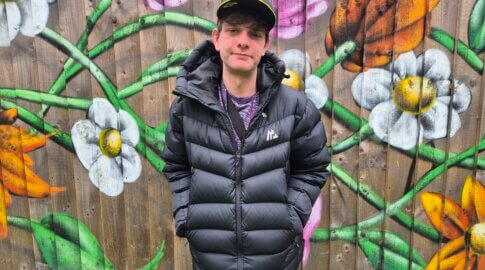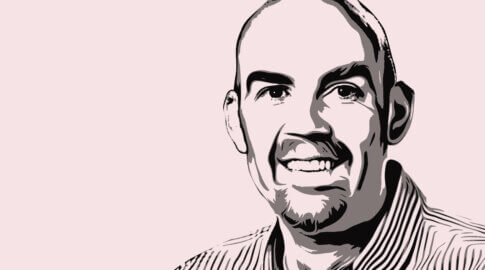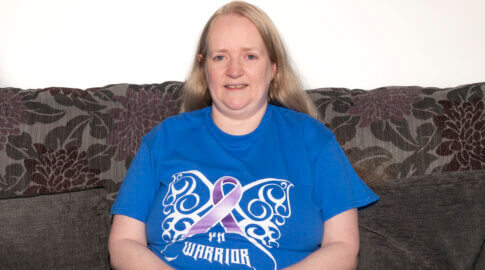Report: Scottish Pulmonary Vascular Unit Patient Day
Ashley Butlin, a PH patient at the Golden Jubilee Hospital in Glasgow, reports on their recent event designed to bring patients together.
Originally planned for early 2020 but cancelled due to Covid, the much-awaited Patient Day finally took place on Saturday October 22, 2022. Attended by 70 patients and family members, the Golden Jubilee Conference Centre attached to the hospital was the perfect location for the day’s events.
Gathering for registration over coffee, the groups began to get to know each other prior to the start of the event which began with a welcome from Dr. Martin Johnson, SPVU Director. The opening speaker was Dr. Harrison Stubbs, an SPVU Specialist Registrar who, with the aid of basic, easily followed illustrations of the heart and lungs, took us through the causes and symptoms of PH. Even for those with a good knowledge of human physiology, this talk shed new light on the reasons for PH.
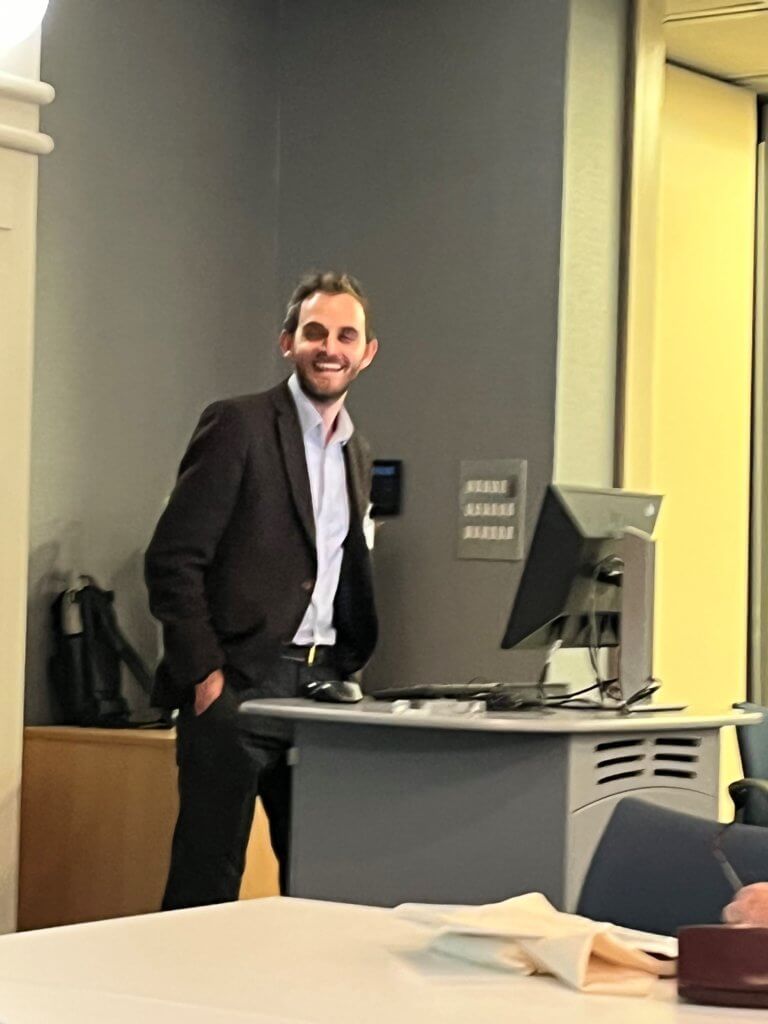
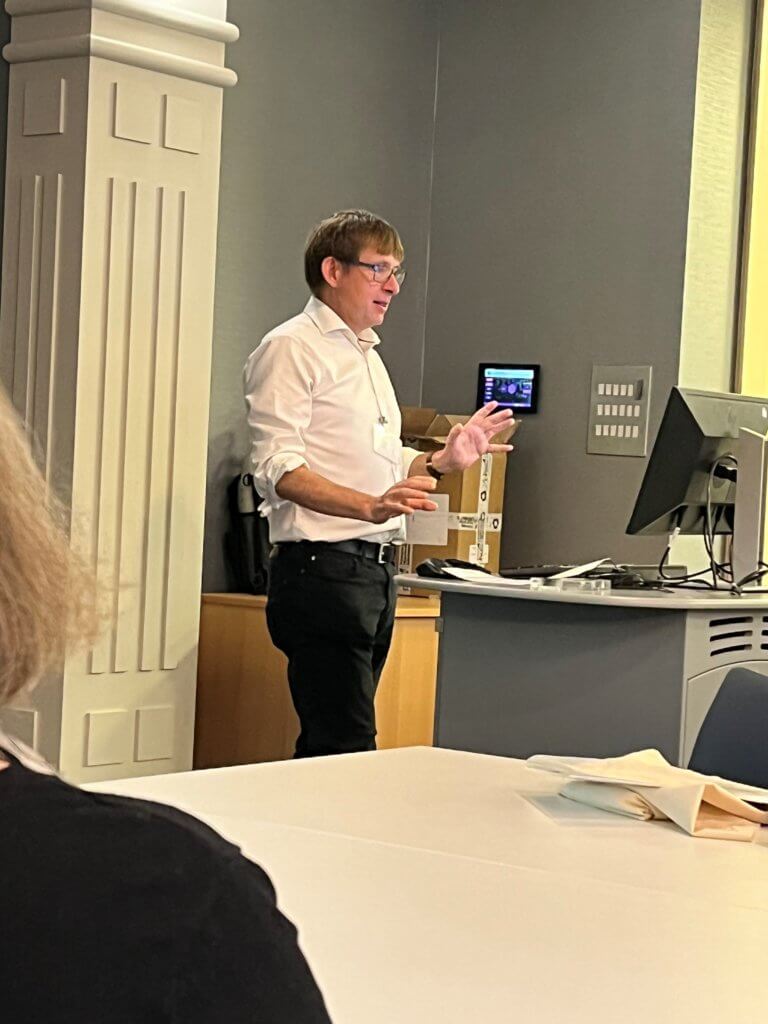
The SPVU is very fortunate to have the services of a newly appointed Clinical Psychologist in Dr. Klaudia Suchorab who spoke next to outline her role within the unit. Being given the diagnosis of PH can come as a shock to patients and their loved ones which is where Klaudia comes to the fore to offer much needed support. Having only been appointed earlier this year, Klaudia was new to many of the delegates, but her reassuring talk gave great confidence that her appointment will be a tremendous bonus not only to newly diagnosed patients but also those who have been treated for much longer.
Each patient with PH has a similar but different path to diagnosis and this was brought home by our next speaker, Michelle Wardrope who took us through her journey with PH. Some of the steps were very familiar, the scans, tests, and catheterization followed by diagnosis, but other parts of her route were probably unique in that, having been a participant in trials, a rare gene in her DNA was identified linked to PH that is also present in her daughter who has also subsequently been diagnosed with PH.
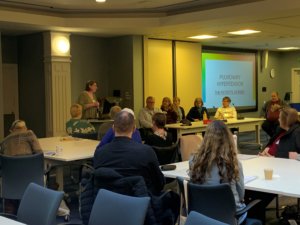
A question time with a panel of SPVU experts took place prior to lunch and while the questions were limited, they showed the concern patients have for the possible power cuts that could occur this winter and the effect this could have on those who rely on oxygen concentrators. It was pointed out that back-up cylinders are available, and no patient should feel concerned provided they keep their back-up filled. Others asked about travel especially when going abroad, and again were reassured that with careful planning most trips should be possible.
An excellent meal followed which again allowed for interaction and discussion between delegates and SPVU staff.
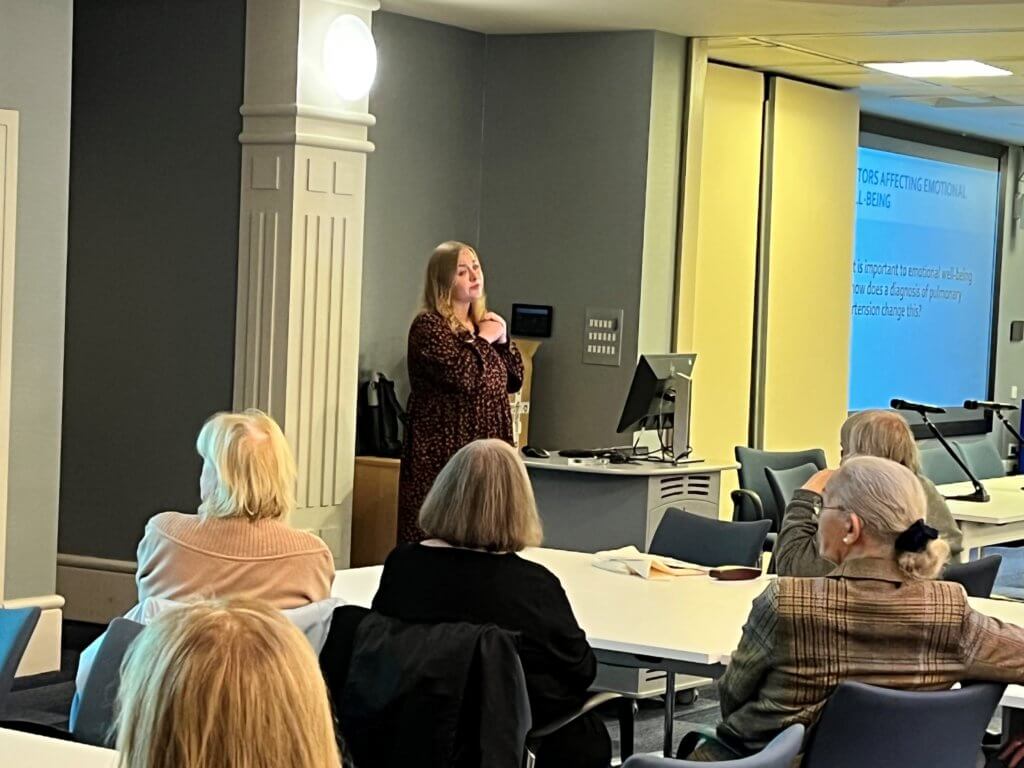
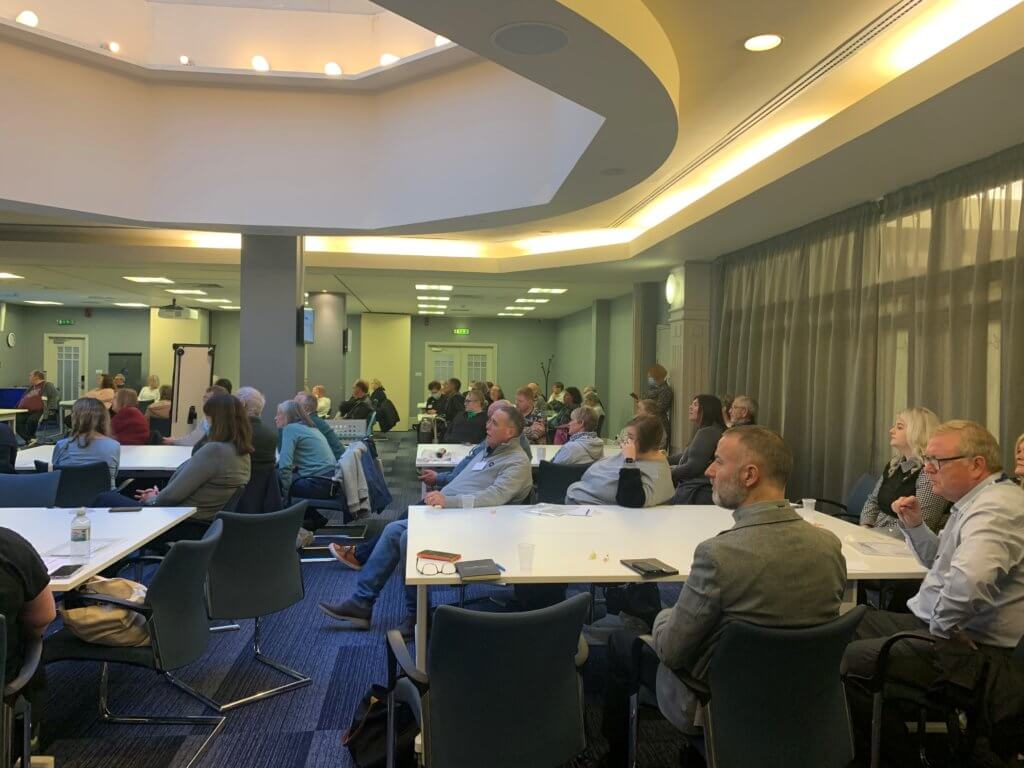
The afternoon sessions proved just as informative starting with Karon Carson, an SPVU Nurse Specialist, taking the group through the thoughtful process of Anticipatory Care Planning – something few of us have probably given much thought to in the past. Letting our family and loved ones know, as well as our medical team, what we are thinking about future choices and care will enable us to enjoy making the most of the present. Planning in this way can also give peace of mind to family and friends, who may be unsure about our preferences.
Karon also introduced a new publication from the PHA UK called Palliative Care & PH. From the outset she made it clear that there is a belief palliative care and end-of-life care are one and the same – they are not, they are very different!
‘Patients can receive palliative care at any stage of their illness, and it doesn’t mean they are dying. It is quite the opposite – palliative care supports us to live well. Palliative care is a holistic type of care. This means it addresses more than just physical symptoms; it supports our psychological, spiritual, social, and other needs, providing true ‘wraparound’ care to enhance quality of life and it is not just for someone with a diagnosis of PH. One of the most beneficial aspects of palliative care is that it is there to support family and friends too, for example with caring commitments, or their own emotional wellbeing’
- (Palliative Care & PH – Pulmonary Hypertension Association UK).
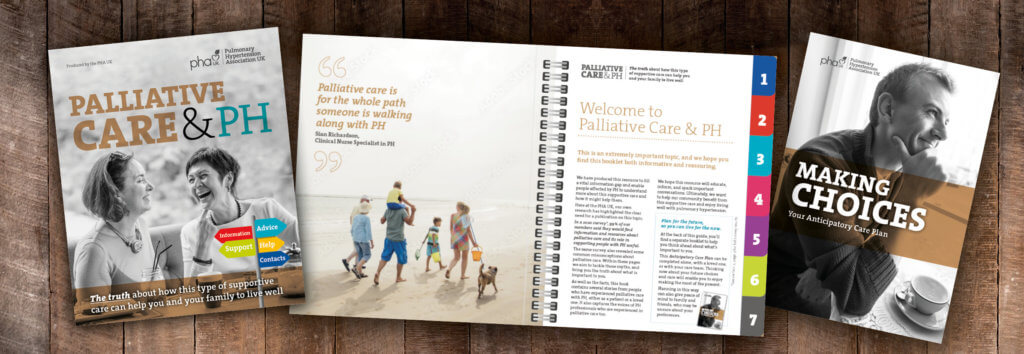
SPVU also have a new specialist pharmacist – Emma Russell, and it was Emma who led the next session about the importance of PH medications. Taking the group through the variety of drugs now available to treat the condition, she highlighted the need for consistency when taking the prescribed medications. Forgetting to take at the right time can lead to complications while stopping completely because a person feels ‘well’ can result in serious problems as restarting invariably needs a careful build-up again to reach the correct dosage.
Our final workshop was taken by Val Irvine supported by Fiona Thomson, the SPVU Research Nurses and looked at the pros and cons of being part of a research project. Medications and treatment of PH have advanced dramatically over the past 25 years or so, none of which would have happened without research. Likewise, future developments, ultimately aimed at finding a cure will require further continual research and this is where current patients can be involved. Those present were given the opportunity to put their names forward to be considered for future projects, although it was made clear that not all who offer their services will necessarily be accepted, and even when they are selected, they are not obligated to go forward if they have reservations.
Alongside the talks and workshops, during the afternoon patients could book 15 minutes alternative therapy sessions, be it a massage, Reiki or Reflexology.
This was a tremendous day put together by the SPVU team who cannot be praised enough for their dedication here north of the Border. Twenty five years ago, there was just a single doctor and nurse. Today, under the present direction and drive of Dr. Martin Johnson, it has grown to a department of 24 consisting of consultants, fellows, researchers, nurses, pharmacist, psychologist, secretaries, and administrative staff. Together, they currently look after 515 patients. Their dedication cannot be underestimated. When needed they are only a phone call away and a response is guaranteed. While based at the Golden Jubilee Hospital in Glasgow they now run clinics in Aberdeen and Edinburgh, making it easier for patients to attend. Future clinics could well follow. We are extremely fortunate to be supported by such a dedicated team and can only offer our heartfelt thanks to them all.
This event was proudly sponsored by the PHA UK












